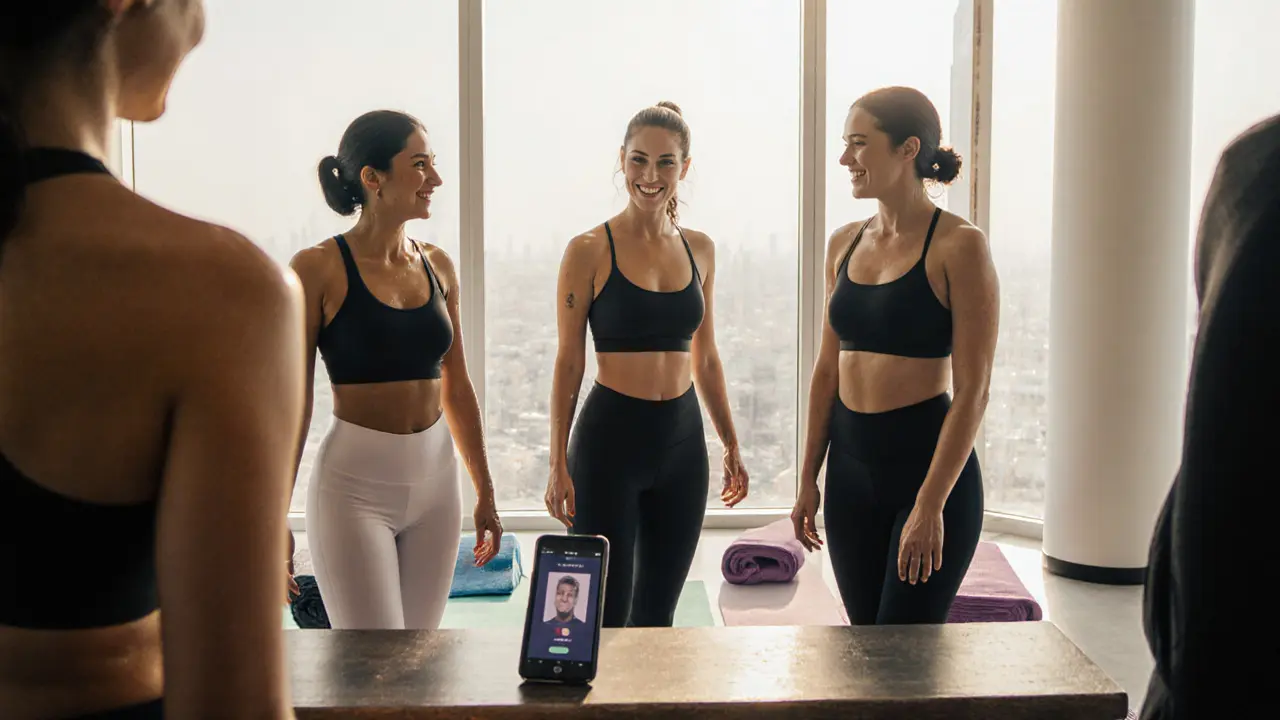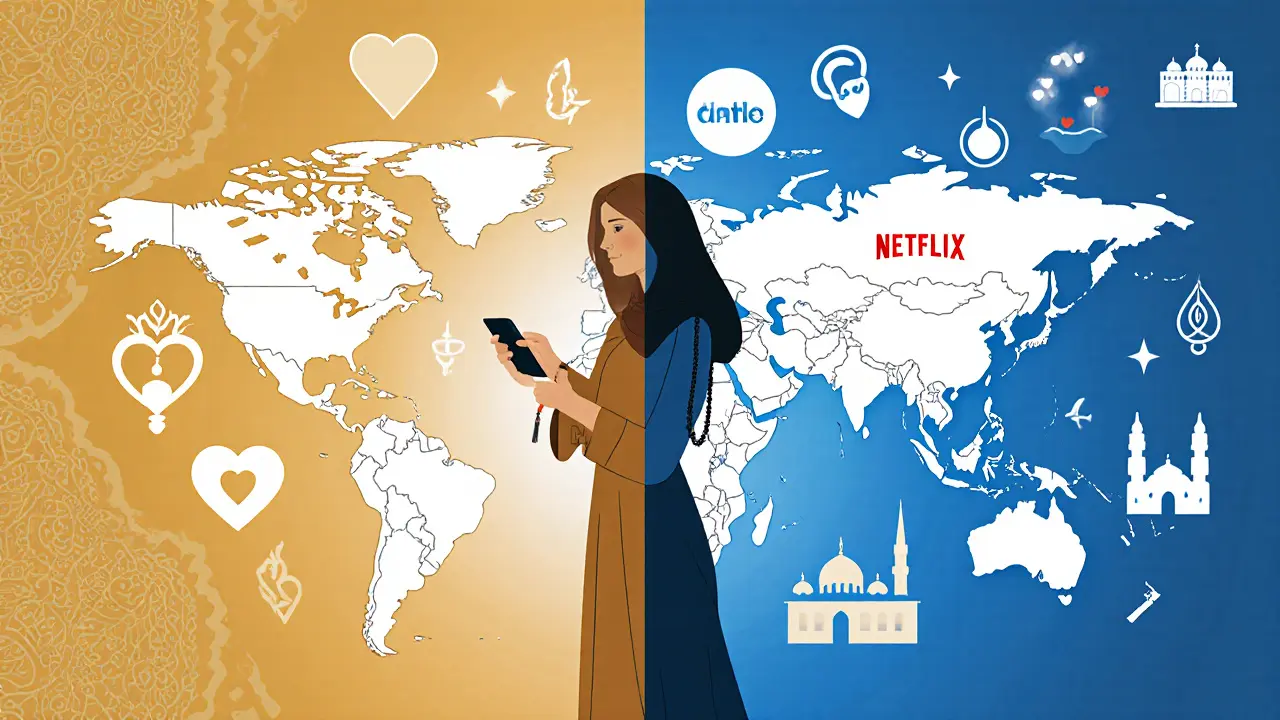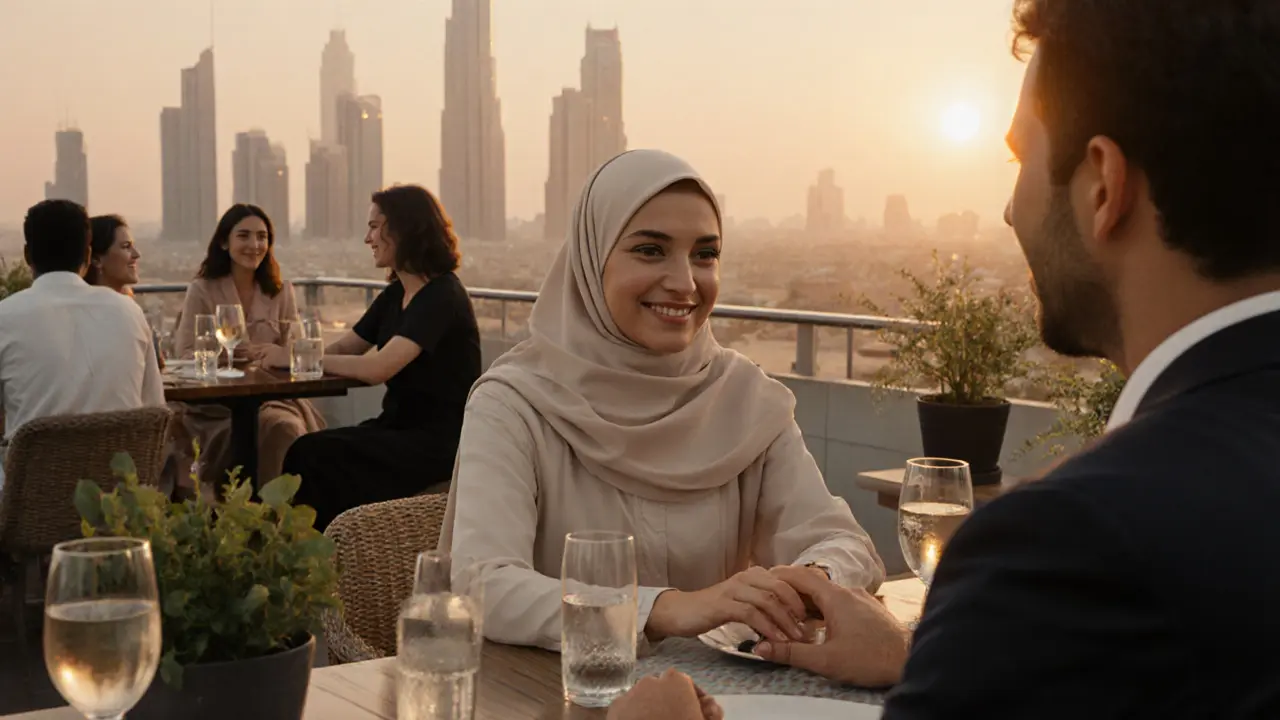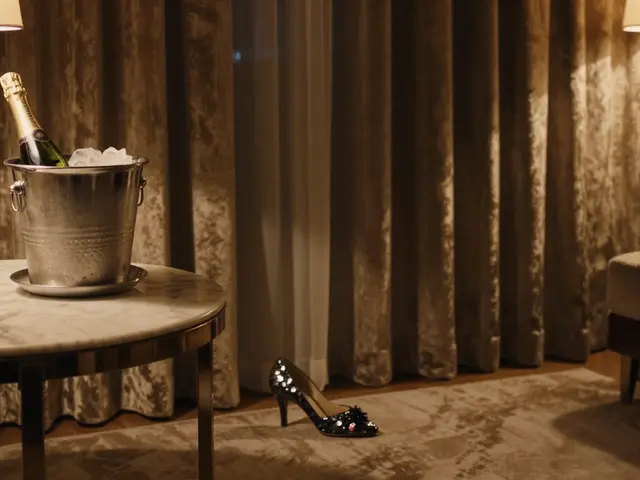Dubai used to be a city where public displays of affection were quietly discouraged, and relationships were tightly bound by tradition. Today, it’s a place where young Emiratis scroll through dating apps on their phones, foreign couples hold hands on the beach, and private parties blend Western and Gulf social codes. This shift didn’t happen overnight. It was pulled in by the slow, steady tide of globalization - not by protest or policy, but by movement, money, and millions of people living side by side.
What Globalization Actually Did to Dubai’s Social Fabric
Globalization isn’t just about trade deals or skyscrapers. It’s about people. Dubai’s population is 90% expatriates. That means for every one local resident, there are nine others from places where dating, cohabitation, and open conversations about sex are normal. These aren’t tourists. They’re teachers, nurses, engineers, and entrepreneurs living here for years. They bring habits. They build lives. They date. They live together. And slowly, their behavior becomes part of the city’s rhythm.
Before 2010, public kissing could land you in jail. Now, it’s rare to see someone arrested for it - not because the law changed, but because enforcement became selective. Police focus on clear violations: public nudity, prostitution, or harassment. But casual affection? That’s often ignored. The city didn’t legalize it. It just stopped policing it as strictly.
Technology Accelerated the Shift
Smartphones and apps didn’t create new desires - they removed barriers. Tinder, Bumble, and even local platforms like Muzmatch became tools for connection, not just hookups. A 2023 survey by the Dubai Statistics Center found that 41% of residents under 30 had used a dating app at least once. Among Emirati women, that number was 27%. That’s not a small fraction. That’s a cultural turning point.
Before, meeting someone meant family introductions or arranged settings. Now, people meet at cafes, gyms, or work - and then connect digitally. The old system didn’t disappear. It just got layered. Many young Emiratis still follow family expectations, but they also use apps to explore options privately. The result? A quiet dual life: public conformity, private exploration.
Media and Entertainment Broke the Silence
For decades, Arabic TV and film avoided explicit discussions of sex. Dubai’s own media landscape was cautious. But global streaming services changed that. Netflix, Apple TV+, and even YouTube brought shows like Sex Education, Sex and the City, and Turkish dramas into living rooms across the city. These weren’t just entertainment. They were education.
Young women started asking questions. Men began talking about emotional intimacy, not just physical acts. Parents noticed. Schools saw a rise in students asking about consent, boundaries, and relationships. The government didn’t launch sex ed programs - but the conversation started anyway. Informal networks filled the gap: WhatsApp groups, Instagram pages, YouTube channels in Arabic explaining relationships in simple terms.

Expats Created New Social Spaces
Think about where people actually hang out. In Dubai, it’s not mosques or traditional majlis. It’s rooftop bars, co-working spaces, yoga studios, and boutique gyms. These are spaces shaped by global norms. They’re designed for casual interaction. They encourage eye contact, conversation, and physical closeness - things that were once reserved for private settings.
At a fitness class in Jumeirah, you’ll find Emirati women in leggings, chatting with Indian, Russian, and British women about their partners. At a rooftop bar in Downtown, you’ll see Emirati men with non-Arab girlfriends. These aren’t rare exceptions. They’re common enough that they no longer raise eyebrows - unless you’re from outside the city.
These spaces became safe zones. Places where norms could be tested without public backlash. Over time, what started as private behavior became normalized. And normalization is how culture changes.
The Role of Economic Freedom
Money matters. Dubai’s economy runs on global talent. To attract skilled workers, the city had to offer more than tax breaks. It had to offer freedom - including social freedom. Companies like Google, Amazon, and Siemens didn’t move their teams here because of the desert views. They moved them here because Dubai lets people live like they do in London, Toronto, or Berlin.
That meant housing policies changed. Co-living spaces for couples became common. Landlords stopped asking if tenants were married. Real estate ads started saying “ideal for couples” instead of “for families only.” Even the government quietly adapted. In 2022, Dubai introduced a new visa category for remote workers - no spouse restrictions, no moral clauses. That wasn’t just economic policy. It was cultural permission.

Religion Still Matters - But It’s No Longer the Only Rule
Dubai is still a Muslim city. Islamic values guide marriage, family, and public conduct. But they no longer control every corner of life. The shift isn’t about rejecting religion. It’s about compartmentalizing it.
Many Emiratis still pray five times a day. They still avoid alcohol in public. They still respect family honor. But they also believe love, attraction, and intimacy are personal matters. The mosque doesn’t dictate who you text at night. The government doesn’t monitor your DMs. That separation - between public morality and private life - is the quiet revolution.
Religious leaders don’t ignore this. Some speak out. Others stay silent. Many quietly accept that younger generations are navigating a world their parents never faced. The goal isn’t to erase tradition. It’s to find space within it.
What’s Still Off Limits?
Globalization didn’t erase boundaries. It just moved them. Prostitution is still illegal. Public sex? Still a crime. Forced relationships? Still prosecuted. The line hasn’t vanished - it’s just clearer now.
What’s allowed? Private relationships. Consensual dating. Cohabitation without marriage (if not flaunted). Open conversations about sex. Emotional intimacy. These are now part of daily life for millions.
The real test? If you walk into a hospital in Dubai today and ask for reproductive health advice, you’ll get it. No judgment. No hesitation. That didn’t happen ten years ago.
The Future: A Hybrid Culture
Dubai’s sex culture isn’t becoming Western. It’s becoming something new - a blend of Gulf values and global realities. Young Emiratis are not abandoning their roots. They’re redefining them.
Marriage still matters. Family still matters. But now, people choose their partners more freely. They talk about sex more openly. They expect respect, not just obedience. And they’re not asking for permission anymore.
The city didn’t change because of protests. It changed because people lived differently - quietly, consistently, and without apology. And that’s how real cultural change happens.
Is public affection legal in Dubai?
Public displays of affection like holding hands or light kissing are rarely prosecuted today, especially among expats. But overt behavior - kissing passionately, hugging in public, or sexual gestures - can still lead to legal trouble. Enforcement is inconsistent, but the risk remains. It’s safer to keep it low-key.
Can unmarried couples live together in Dubai?
Yes, but not officially. The law technically bans cohabitation for unmarried couples. In practice, landlords and authorities often turn a blind eye - especially if the couple doesn’t draw attention. Many expats live together without issue. Emiratis are more cautious, but even some young locals do so privately. It’s tolerated, not legal.
Are dating apps popular in Dubai?
Very. Over 40% of residents under 30 have used a dating app. Apps like Tinder, Bumble, and Muzmatch are widely used. Emiratis often create private profiles to avoid family exposure. Many use them to find serious relationships, not just casual dates. The stigma is fading, especially among educated, urban youth.
Has sex education improved in Dubai schools?
Not officially. Public schools still avoid detailed sex education. But students are learning elsewhere - through apps, YouTube, and peer groups. Some private international schools offer comprehensive programs. The gap is being filled by informal education, not government policy.
Is homosexuality accepted in Dubai?
No. Same-sex relationships remain illegal. Public expression of homosexuality can lead to arrest. However, many LGBTQ+ expats live discreetly in Dubai, especially in expat-heavy areas. There’s no open community, but underground networks exist. Safety depends on privacy and discretion.
How do Emirati women navigate changing norms?
Many Emirati women are navigating a balance: respecting family expectations while seeking personal freedom. Some delay marriage to focus on careers. Others use dating apps privately. Many speak openly with close friends about relationships. They’re not rejecting tradition - they’re expanding it. Their choices are quiet, but they’re changing the conversation.
Will Dubai’s sex culture keep changing?
Yes. As long as global talent keeps flowing in and young locals stay connected to the world, change will continue. The next shift may be around marriage equality, reproductive rights, or gender identity. But it won’t happen through laws. It will happen through daily choices - the same way it always has.




